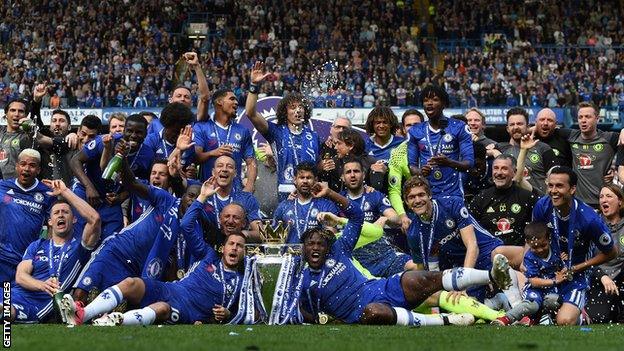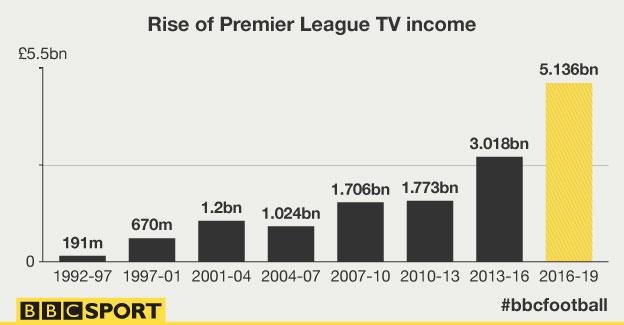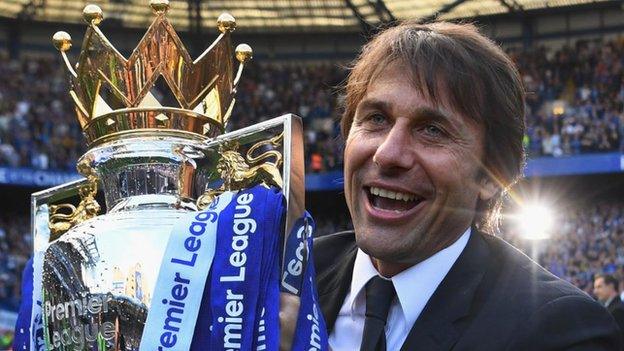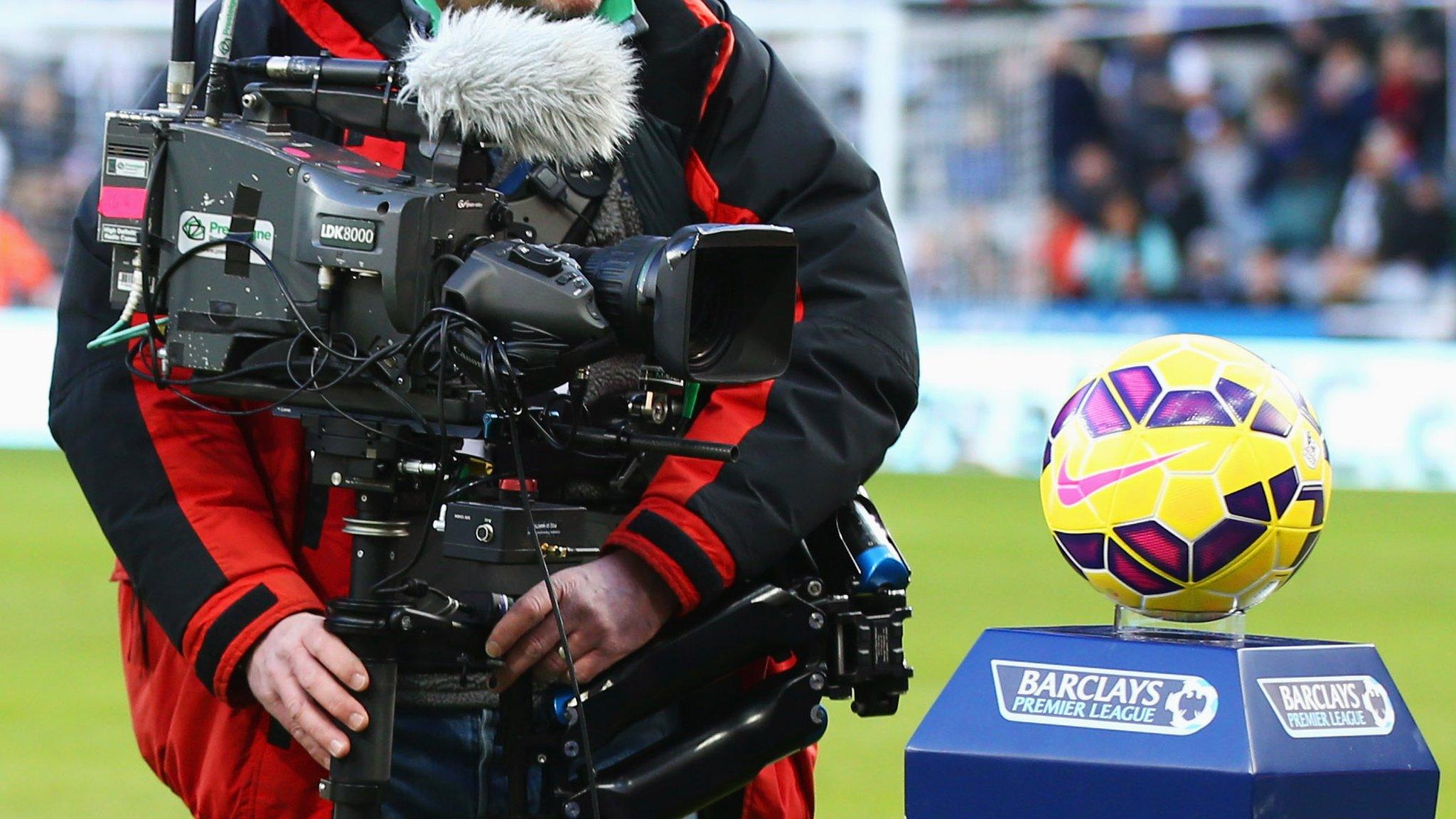Premier League TV rights: Clubs set for 'one of most important meetings'
- Published

Chelsea won the title in 2016-17 - and received almost £151m from the Premier League
Club bosses are preparing for one of the most important meetings in the Premier League's history on Wednesday.
It comes amid a potentially damaging split over the way the next round of multi-billion-pound international broadcasting rights are shared.
Under pressure from the six richest clubs, the league's executive chairman Richard Scudamore has proposed ending 25 years of the equal sharing of international broadcasting income.
Scudamore presented his plan - which would see 35% of the revenue divided according to league position - to the 14 other clubs last week. But it has been met with resistance and, with a two-thirds majority required to approve any changes, he now faces a major challenge to broker some form of agreement.
Biggest TV deals | |||
|---|---|---|---|
Competition | Annual cost | Total cost | Duration |
NFL (American football) | $4.95bn (£3.24bn) | $39.6bn (£25.95bn) | 8 years (2014-22) |
NBA (basketball) | $2.6bn (£1.7bn) | $24bn (£15.73bn) | 9 years (2016-25) |
MLB (baseball) | $1.55bn (£1.02bn) | $12.4bn (£8.13bn) | 8 years (2014-21) |
Premier League | £1.7bn | £5.14bn | 3 years (2016-19) |
The £3bn overseas deal for 2016-19 generates a £39m annual windfall for each club.
But new contracts for some international markets such as China and the United States for the next period between 2019 and 2022 have been booming in value. The so-called 'big six' - Manchester United, Manchester City, Arsenal, Tottenham, Liverpool and Chelsea - now want their greater global popularity reflected.
Some are understood to feel that the domestic TV market, currently worth £5.1bn, may be nearing saturation point. It is also thought some were worried by Leicester City's surprise Premier League win in 2015-16, and are concerned about competing with the likes of Paris St-Germain, Barcelona and Real Madrid for the best playing talent.
The league is keen to reach a compromise before going into domestic rights negotiations, where worries over what the 'big six' could do next - if they are blocked - could create uncertainty.
Failure to reach agreement would inevitably revive concerns over the possibility of a breakaway of the richest clubs to form a European 'super league'. More realistically, they could agitate to have more matches broadcast live, or revisit the idea of playing games abroad.
How the income of domestic TV deals have changed

What the breakdown is
Premier League payment to clubs 2016-17 | ||
|---|---|---|
Club (UK live TV appearances in brackets) | Prize money (£) | Total payment (£) |
Chelsea (28) | 38,832,180 | 150,811,183 |
Spurs (25) | 36,890,571 | 145,461,325 |
Man City (28) | 34,948,962 | 146,927,965 |
Liverpool (29) | 33,007,353 | 146,112,439 |
Arsenal (25) | 31,065,744 | 139,636,498 |
Man Utd (28) | 29,124,135 | 141,103,138 |
Everton (18) | 27,182,526 | 127,800,699 |
Southampton (15) | 25,240,917 | 122,450,841 |
Bournemouth (13) | 23,299,308 | 118,237,066 |
West Brom (11) | 21,357,699 | 114,023,291 |
West Ham (15) | 19,416,090 | 116,626,014 |
Leicester (16) | 17,474,481 | 115,820,488 |
Stoke (10) | 15,532,872 | 107,062,381 |
Crystal Palace (14) | 13,591,263 | 109,665,104 |
Swansea (10) | 11,649,654 | 103,197,163 |
Burnley (10) | 9,708,045 | 101,237,554 |
Watford (13) | 7,766,436 | 102,704,194 |
Hull (10) | 5,824,827 | 97,354,336 |
Boro (13) | 3,883,218 | 98,820,976 |
Sunderland (10) | 1,941,609 | 93,471,118 |
Total | 407,737,890 | 2,398,515,773 |
- Published1 June 2017

- Published10 February 2015
